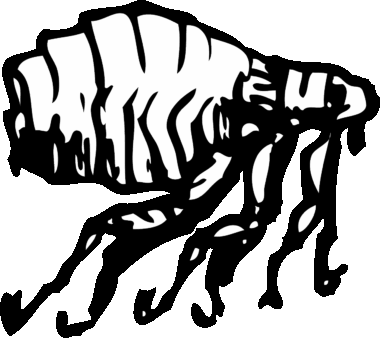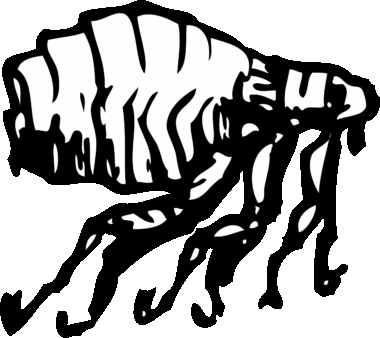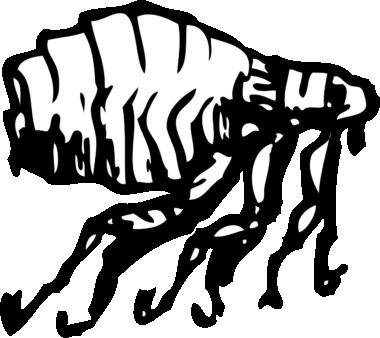Seasonal Parasite Risks for Dogs: What to Watch For
As the seasons change, different parasites emerge, posing unique risks to your canine companions. Understanding these seasonal variations in parasite activity is critical for effective prevention. Various factors influence these fluctuations, including climate, environment, and your dog’s lifestyle. Tapeworms, ticks, mosquitoes, and fleas are common culprits during specific times of the year. By being proactive, you can shield your dog from these potentially harmful invaders. Awareness of parasite behaviors enables you to take preventative measures appropriate to the season. For instance, flea and tick treatments are crucial in warmer months when outdoor activities increase. Additionally, heartworm prevention should be prioritized prior to mosquito season. Research suggests that some parasites can thrive during mild winters, making monitoring crucial. Regular check-ups with your veterinarian are important for maintaining parasite control. Make parasite prevention a priority to ensure your dog enjoys every season without worrying about their health. Keep your dog’s living environment, including your yard, free from parasites. This includes understanding your area’s specific parasite risks associated with each season.
When thinking about seasonal changes, it’s vital to remember how some parasites can endure harsher climates. For example, flea larvae can survive in carpets and dog bedding even during winter. To combat these persistent invaders, deep cleaning activities should become part of your routine. Regularly washing your dog’s bedding and using suitable grooming products will reduce exposure to these pests. Furthermore, it’s essential to create a relationship with your veterinarian to gain insights into seasonal parasite treatments tailored for your dog’s specific needs. Your vet will offer invaluable guidance on the best prevention products to use at different times of the year. This might include oral medications or topical treatments, depending on your dog’s lifestyle and risk factors. Different regions may have varying levels of parasite prevalence, so stay informed about local outbreaks. Your vigilance will go a long way in protecting your beloved pet from parasites. Remember that keeping your dog in good health is a lifelong responsibility. Prioritizing proper parasite control can prevent serious health issues and improve their overall quality of life. Continuous education is key to making informed decisions regarding dog parasite control.
Common Seasonal Parasites in Dogs
Several parasites affect dogs throughout the year, with seasonal patterns. In spring and summer, fleas and ticks become particularly prevalent. Their populations can explode under favorable weather conditions, impacting your dog during outdoor activities. Fleas can lead to allergies and skin infections, while ticks can transmit serious diseases. Lyme disease and Rocky Mountain spotted fever are recent concerns linked to ticks. Prevention during this peak time is crucial for your pet’s safety. In autumn, mosquitoes, which carry heartworms, are also a significant risk. Dogs can contract heartworms through mosquito bites, leading to severe health complications. Effective preventive measures include heartworm medications administered ahead of mosquito season. Winter introduces different challenges, including the risk of intestinal parasites. Dogs might encounter parasitic infections from contaminated water or food. These include giardia and various worms, which can cause gastrointestinal issues. Give your dog regular check-ups to screen for these worms. Parasite control involves a proactive approach throughout the year to ensure your dog’s well-being and longevity. By being informed about these seasonal parasites, you foster a healthier life for your furry friend.
Awareness of the symptoms of parasite infestations is vital for timely action. For example, fleas can cause excessive scratching, hair loss, or skin irritation. Ticks may appear as small, embedded pests on your dog’s skin. Changes in appetite, weight loss, or lethargy could indicate internal parasites, including worms. If you observe any of these signs, always consult your veterinarian as soon as possible. Prompt veterinary care can prevent complications and enable effective treatment. Early intervention is particularly crucial for heartworm concerns due to its potentially fatal nature. Regular veterinary visits also provide opportunities for vaccinations, which can help in preventing certain diseases caused by parasites. Also, blood tests may be necessary to check for infections that require immediate treatment. Keeping abreast of your dog’s health assessments ensures that they receive comprehensive care. In addition, it’s helpful to keep a calendar of preventive treatments and vet appointments. Doing so simplifies tracking your dog’s parasite control regimen over the seasons. Taking a proactive stance promotes a happier, healthier pet and reduces your stress in managing their health.
Effective Prevention Strategies
Implementing effective strategies is crucial for keeping both fleas and ticks at bay. This includes regular grooming and administration of preventive treatments. There are many product options available, including topical treatments and oral medications. Consult with your veterinarian to determine which option is best for your dog’s lifestyle and health needs. Additionally, you can enhance parasite control by keeping your environment clean and tidy. Regular yard maintenance is essential, including mowing grass, clearing debris, and ensuring your dog’s environment is clean. Reducing tall grass and flower beds limits shelters for parasites. Additionally, you may consider using specific products designed for treating yards to eliminate potential invaders. Ensuring your dog’s nutrition is top-notch also contributes to a healthy immune system, which can fend off parasitic infections more effectively. Making sure your pet stays hydrated and receives balanced meals goes a long way. Lastly, educate yourself on the local parasite activity trends throughout the year. This information allows you to adapt your preventive measures with each passing season. Proactive and consistent efforts will significantly improve your dog’s experience during outdoor explorations.
Your dog’s well-being is vital, and understanding parasite control is part of this responsibility. The potential health risks posed by parasites should never be underestimated, as they can lead to severe health issues. Factors such as geographical location, breed, and lifestyle can influence your dog’s susceptibility to parasites. To combat these risks, develop a personalized parasite prevention plan tailored specifically to your dog. One effective strategy is to monitor your dog’s surroundings, even during walks at local parks. Keep an eye out for warning signs of other dogs that may have been exposed to parasites. Social interactions in pet-friendly environments can increase exposure to hidden dangers. Consider discussing these observations with your veterinarian at your next visit; they may have additional recommendations based on current local parasite prevalence. Prevention is vastly more effective than treatment, making it affordable and safer for your pet’s health. Thus, continuously reinforcing your dog’s preventative care routine will ensure lasting health and happiness. Families must collaborate to enhance the dog’s safety. When you maintain a proactive approach to parasite control, your puppy stays safe and, importantly, healthy.
Final Thoughts on Dog Parasite Control
In conclusion, being vigilant about seasonal parasite risks provides your dog with a protected life full of joy and freedom. By understanding these risks and how different seasons affect parasite activities, you can develop a structured prevention strategy. Remember to consult your local veterinarian about your dog’s unique health situation to craft a comprehensive care routine. Their expertise will guide you in selecting the most effective preventive treatments and services available. Never neglect regular check-ups as they are vital for early detection of potential health concerns. Continuous learning about emerging parasitic threats can save your dog from serious consequences, enhancing your role as a responsible pet owner. Your awareness and engagement provide your dog with the best possible defense against parasites. Whether it is seasonal changes or inherent local risks, being well-informed puts you in a position of power. Pay attention to your dog’s behaviors and ensure they are happy and healthy. When caring for your pet, be proactive, and dedicate time to educate yourself. A healthy pet is ultimately a happy pet, allowing complete freedom for you and your furry friend throughout each season.





